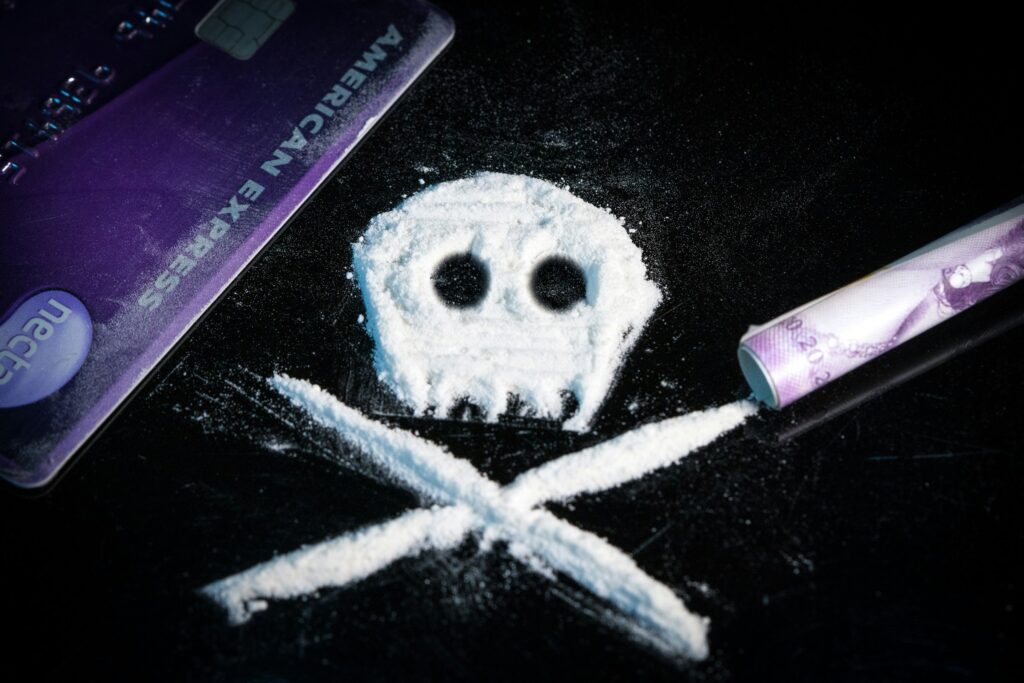Summary:
- Cocaine and alcohol are often mixed to enhance the euphoric effects of cocaine, but this combination can lead to severe health risks.
- The mixture of cocaine and alcohol creates a third substance called cocaethylene, which increases the toxic effects in the body and can be deadly.
- Using these substances together can lead to heart problems, liver damage, and an increased risk of sudden death.
- Mixing cocaine and alcohol can impair judgment, leading to risky behaviors and accidents.
- Immediate help should be sought for individuals struggling with substance use involving these drugs.
Substance abuse is a critical issue that affects millions globally, and among the various forms of substance misuse, the combination of cocaine and alcohol stands out due to its particularly dangerous implications. This article delves into the risks associated with mixing these two potent substances, aiming to provide vital information to those grappling with addiction.

The Dangers of Combining Cocaine and Alcohol
Cocaine is a powerful stimulant that elevates mood, increases energy, and brings feelings of supreme confidence. Alcohol, in contrast, is a depressant that reduces anxiety and inhibitions. When mixed, these substances conflict in the body, causing severe physical and psychological effects.
Cocaethylene: A Potent and Dangerous Byproduct
One of the most hazardous outcomes of mixing cocaine and alcohol is the formation of cocaethylene. This compound is produced in the liver when cocaine and alcohol are metabolized together. Cocaethylene has a longer half-life than cocaine alone and is significantly more toxic. It intensifies the euphoric effects of cocaine, which can lead to increased and prolonged substance use, dramatically raising the risk of overdose and sudden death.
The production of cocaethylene also heightens the strain on the cardiovascular system, significantly increasing the risk of heart attacks, arrhythmias, and even sudden death. It places extra stress on the liver, potentially leading to acute liver damage or long-term problems such as cirrhosis.
Increased Risk of Psychological Effects
Mixing these substances not only increases physical health risks but also exacerbates psychological effects. The stimulation from cocaine coupled with the depressant nature of alcohol can lead to a paradoxical effect on the user’s mental state. This can manifest as increased paranoia, anxiety, and even severe depression after the substances wear off. The conflicting effects can confuse the brain, making it difficult for users to perceive their level of intoxication accurately, often leading them to consume more of one or both substances, which increases the risk of addiction.
Impaired Judgment and Risk of Injury
The impairment of judgment is a significant risk when mixing cocaine and alcohol. Cocaine can reduce the sensation of drunkenness, leading individuals to drink more alcohol than they typically would, which can result in severe alcohol poisoning. Moreover, the combined use of these substances can lead to aggressive behaviors, resulting in physical altercations or accidents.
The Long-term Consequences
Long-term use of cocaine mixed with alcohol can lead to multi-organ damage. Regularly putting the body through the stress of digesting these toxic substances can lead to chronic ailments like heart disease, liver disease, and neurological impairments. The social consequences are equally severe, including long-term unemployment, familial breakdown, and increased criminal behavior.
Seeking Help
If you or someone you know is struggling with addiction, especially with dangerous combinations like cocaine and alcohol, it is crucial to seek help immediately. Treatment facilities offer comprehensive care and are equipped to manage the detoxification process safely and effectively.
Alliance understands the complexities of addiction, particularly the challenges faced by those addicted to mixing cocaine and alcohol. We offer specialized programs designed to address the unique needs of our clients, ensuring a supportive and understanding environment to foster recovery.
Conclusion
The risks associated with mixing cocaine and alcohol are grave and can lead to severe health complications and even fatality. Understanding these risks and the importance of seeking professional help can be the first step towards recovery. If you or a loved one is facing such challenges, please contact Alliance-Treatment at 213-513-5463 to find out more about how our programs can help turn the tide in the battle against addiction.




